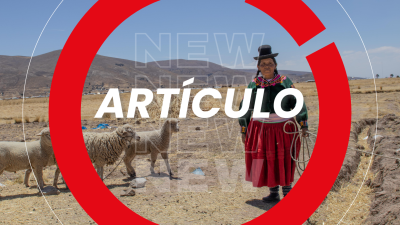The OECD-DAC Network on Gender Equality (GENDERNET) and the governments of Switzerland, France, Morocco and Peru co-organised a successful high-level side-event on gender and climate change at the OECD pavilion on 3 December.
The event brought together inspiring actors who are driving gender-responsive climate action from the local to the global level. The side-event was moderated by Brenda Killen (DCD). Panellists included Ambassador Ulrich Lehner, Permanent Representative of Switzerland to the OECD; Mary Robinson, President of the Mary Robinson Foundation-Climate Justice, and UN Secretary-General’s Special Envoy for Climate Change; Manuel Pulgar Vidal, Minister for Environment, Peru, President of COP20; Hakima El Haite, Minister Delegate to the Minister of Energy, Mining, Water and Environment in Charge of Environment of Morocco; Pascale Boistard, Minister of State for Women’s Rights, France; civil society activists Hindou Oumarou Ibrahim and Thilmeeza Hussain; Christine Albanelthe, Executive Director for Corporate Social Responsibility at Orange; and Rupa Mukerji, of HELVETAS Swiss Intercooperation.
The following key messages/priorities for action emerged from the discussions:
- Vulnerability to climate change has a female face. At the same time, women and girls are leaders and innovators in developing effective coping strategies, building resilience, and putting effective climate responses into practice.
- Women must be equally represented in decision-making on climate change at all levels: from global negotiations right down to the community level.
- More evidence of the work that women are doing at the local level to respond to climate change is needed through better documentation of these efforts.
- All climate-related projects should start with a gender analysis and remove the obstacles to women’s full participation in order to be effective and inclusive.
- All climate financing mechanisms must systematically integrate gender equality, and more data on the gender-responsiveness of climate finance will be crucial.
- Building alliances and bringing men and boys into this work as partners is critical to deliver gender just climate responses.
- Operative language on gender and human rights needs to be maintained in the COP21 outcome document. Work is also needed to address gaps in language on gender equality in the current text, for example in the area of technology.
Testimonies of Rupa Mukerji and Brenda Killen in the following video:
| Video |
Twenty years ago, the Beijing Declaration and Platform for Action was the first international agreement to recognise the linkages between gender equality and climate change by identifying ‘Women and the Environment’ as one of twelve critical areas of concern. In recent years, progress has been made in integrating gender equality in international agreements on climate change and sustainable development – a steep change from the Kyoto Protocol where gender equality was absent. At COP7 in Marrakech (2001), all Parties to the United Nations Framework Convention on Climate Change (UNFCCC) agreed for the first time on the need to improve women’s equal representation and participation in the UNFCCC proceedings. The Lima Work Programme on Gender, launched in 2014, marked another critical step by calling for the adoption of a gender- sensitive approach in the development and implementation of all climate policies and relevant activities under the Convention. Climate action is also being driven from the bottom-up, with women at the forefront. Women are leaders in building resilience and developing effective coping strategies in the face of climate change, at local and national levels. Their experience, insights and leadership are essential in developing and implementing effective, locally appropriate climate solutions, which have a positive impact on the lives of women and men and at the same time and in turn contribute to achieving gender equality. 2015 represents a momentous year to raise the level of ambition in support of gender-responsive climate change solutions with the adoption of the Sustainable Development Goals and the finalization of a new international climate agreement at COP21. This side event will provide an opportunity to hear from actors who are striving for gender-responsive climate action from the local to the global level and to learn from their experiences. Based on their insights, this side event will help to identify priorities for accelerating the effective integration of gender equality across the whole range of climate actions.








